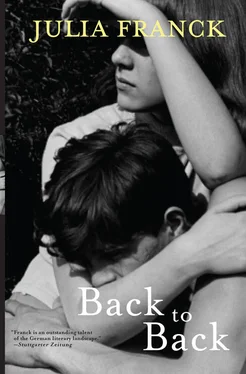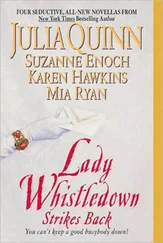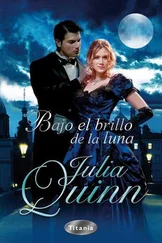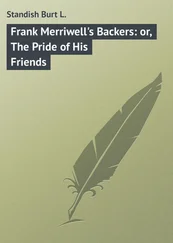There was cheerful jazz music on the radio. Käthe pushed her protective goggles up into her hair, placed the peening anvil on the workbench and laid the chisel beside it. She went to the sink to wash her hands. I’ll make us something to eat, after that you can sit for me again for the wax model. An announcer’s voice told listeners the time: it was 17.30 hours. Käthe turned the tap on only a little way so as not to drown out the news. The sound of running water mingled with the voice of the radio newsreader: We learn from Cuba that the invasion by North America has been repelled. Let us take the Bay of Pigs as a sign of resistance to American imperialism. Fidel Castro calls on his country to defend itself against the aggressor. The coming together of nations couldn’t mean much to the crows; they had left the yard, leaving only black feathers lying on the ground. Had they taken their brother’s head with them, had they hacked it to pieces, eaten it? Had some other creature slunk into the yard unnoticed to steal the head?
Just think of that. The towel she was using to dry her hands still moving, one ear bent close to the loudspeaker, Käthe positioned herself beside the radio. She would have liked to hear more about the Bay of Pigs, but now the radio was playing music, two good friends, two good friends, they don’t say goodbye when they part, because for two good friends, two good friends, there’s. . She had turned the radio off, she had even less liking for Fred Frohberg than for Freddy Quinn. The world will fall victim to kitsch yet, she said disparagingly, hanging the towel on its hook.
Why does the lodger give you red carnations?
Käthe smiled. Well, he values me. He values my work — she batted her eyelids jokingly — maybe he admires me?
Why did you give Ella that mound of sugar?
Sugar?
Two years ago, don’t you remember?
Why, why! What makes you think of that? What odd questions to ask!
That was how it had begun. Perhaps Käthe hadn’t noticed, perhaps he ought to jog her memory? She got thinner and thinner, the mountain of sugar got hardly any smaller. Thomas thought of the expression on her face, it had entrenched itself there as the months passed, as if she had been paralysed. She had felt revulsion.
Well, so now she’s asleep. The way Käthe said that it sounded sensible, practical. In Käthe’s mind there was no connection between the mountain of sugar and the waning of Ella’s body to a slender crescent. She disliked memories, she did not like to look back, everything ought to go forward. This year I’d have given her a few hours of extra coaching as a present, if she hadn’t been in hospital. Her eighteenth birthday, and she thinks herself grown up.
When you talk like that I get the feeling you’re making fun of her. Are you angry? She can’t help being sick.
Nonsense. Go ahead, defend her. She skips school. When she comes home in a few weeks’ time you’ll have finished your exams. A year younger, and you’re ahead of her. With these words Käthe marched up the stairs.
Thomas didn’t like the way she was playing him off against Ella. He felt ashamed. Maybe, as she saw it, he ought to feel proud because at last he’d be starting real work in the summer. What could be a more suitable period of probation before he studied than experience working in production, industry, a combine? Anyone wanting to study geology had to work for one or two years coal mining, or at least in a quarry or on a drilling rig. It was called practical training. At last he was to show what he could do — manual labour, helping to build the research institutes of tomorrow. The idea was that that made studying possible. . perhaps. Thomas didn’t want to disappoint Käthe. He heard her dictum clearly: If you thought you needn’t bother about celebrating adult citizenship when you were fourteen, if you thought you needn’t bother to join the Free German Youth, then at least show your attitude to the class struggle by working. Anyone who sits around doing nothing doesn’t deserve to study.
He had registered; in September he was to go to Gommern near Magdeburg and begin working in the stone quarry there. In the pit, in the gravel works, crushing rock, never mind which. There’d be a job for a young man like him; oh yes, everyone was useful. He couldn’t tell Violetta that he had to go away for several months. He wouldn’t find out what her lips felt like under his. He already missed seeing the rhythm of her breathing under the skin around her collarbone. Did anyone have a prettier collarbone? When she was happy he could see her pulse beneath the thin skin of her throat. How often had he watched her breathing as her small breasts rose and fell? He sometimes put an arm round her. Once he had put both arms round her and hugged her. It might have been only a moment, a moment he liked to remember, even now. But then he had let go of her, had taken a step back, had said something unimportant so that Violetta wouldn’t notice his arousal, so that the lodger would get out of his mind, and with him Ella’s drought. No more of that.
In a few weeks’ time, Ella was supposed to have slept enough. Siegfried and Johnny were asking Thomas almost every day when they could go and fetch their friend Ella from hospital. He didn’t tell them.
Minga la bye, dingula tu, shnagulaia shnoo. Ella couldn’t help giggling, her brother’s breath on her throat tickled, he was playing the flute on her skin. Thomas puffed at the hair on the nape of her neck, raising it, and placed the velvet ribbon smoothly round her throat. He carefully put a safety pin through the ribbon to hold it in place while Ella examined herself in the mirror, ran the palms of her hands over her hair, and checked her Prince Valiant fringe for any hairs out of place. Even in the muted light of the reading lamp her dark hair shimmered. She had put on a dark red, rather well-worn felt cap, and now she pinned the red-and-blue parrot feather in place with the golden brooch she had once found under the table in the smoking room when she was sweeping up after a large party. A keeper in the Zoological Garden had given Ella the feather; he had probably liked her covetous expression, the thin, bare arm she had put through the bars and was swinging, and the hand dangling from the end of that arm as she tried to pick up the feather lying on the floor. Her fingertips had landed again and again in the bird shit that covered the floor of the aviary. Then the keeper had come to her aid with a long-handled pair of pincers that perhaps he used for collecting sandwich wrappings or animal droppings. The feather adorned her today, attractive rather than magnificent. Ella turned her head so that she could see herself in half-profile, and checked the back of her neck in the mirror and the bottom of her hairline, which she had moistened and curled around her little finger until it no longer stood out like weeds shooting up in the wilderness, but fell smoothly into place like the fur of an animal. She felt her brother’s warm hands on her shoulders, he fleetingly passed his forefinger down her backbone, warmed her neck and let his hand stay there; he knew how to soothe her. She would give him the first dance, certainly the second, and maybe the last dance too.
Guests had been arriving for the last two hours. Through the closed door of the room, Ella heard them knocking rain off their umbrellas and coats in the corridor, the walls of the house quivered to the noise of chattering, laughing, cries of surprise. In the long corridor Ella and Thomas heard the bell ringing and the guests knocking, the shrill tones of greeting. As guests passed, someone’s elbow might hit the door of the room, something scraped by, perhaps an umbrella brushing against the door; Käthe’s dog barked shrilly. Only guests coming here for the first time rang the bell — everyone else knew that Käthe’s door was always open, you could walk in at any time. Whoever wanted to, whenever they wanted to, with flowers or empty-handed. It was a railway junction of parties, gatherings, meetings. Even secret and personal, intimate and riotous encounters took place behind unlocked doors. Those who came were responsible for deciding to come and for what they would see and hear.
Читать дальше












